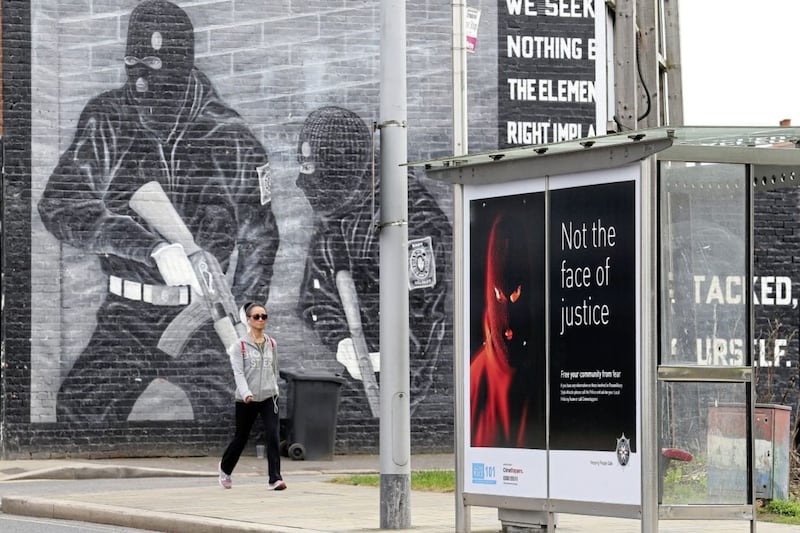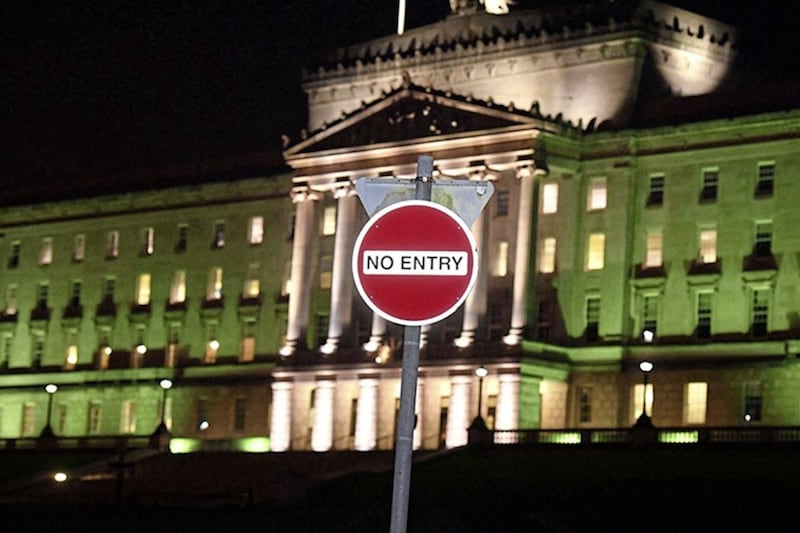WE are arguably in the most stable period of government since devolution was restored and surely some credit for this must go to the Fresh Start agreement.
But while it helped fix a number of Stormont’s largely self-imposed ‘housekeeping’ problems, the stuff that still causes deep division in our society continues to be kicked down the road.
Ironically, the process from which the agreement emerged was originally conceived to address the divisive issues of flags, parades and the past before morphing, as circumstances dictated, into a remortgaging exercise coupled with a restructuring of Stormont’s departments and measures to tackle paramilitarism.
The on-off negotiations that concluded a year ago began with the much-hyped arrival of Richard Haass and Megan O'Sullivan at the end of summer 2013.
Despite an expectation then that a compromise would inevitably be found, the Haass process failed. The follow up talks that were convened by the British and Irish governments in the autumn of 2014 featured a new element reflecting Sinn Féin's sudden resistance to the Tory-led coalition’s welfare reform plans, a stance that chimed with republicans’ anti-austerity agenda in the south.
After 11 weeks and a matter of days before Christmas, the two governments emerged with the Stormont House Agreement.
This accord included fresh detail on how legacy issues could be addressed and saw Sinn Féin acquiesce to the Tories' welfare changes but with a series of mitigation measures to protect the "most vulnerable". It also included plans to reduce the number of executive departments.
At the end of the following February, however, Gerry Adams’s party dramatically withdrew support for the agreement, accusing the DUP of "bad faith” over welfare. Suspicions remain that the republicans' shock tactic was a bid to buy time until a Labour government came to power in Britain and an election was called in the south – neither of which materialised.
The dysfunctional Stormont executive limped on amid much recrimination until the IRA murder of Kevin McGuigan in August last year forced the institutions into crisis and focused minds on a new round of talks.
The Fresh Start agreement that emerged a year ago was largely Stormont House in duplicate but with a timely bolt-on for tackling paramilitarism.
It saw hundreds of millions of pounds pledged, borrowed and recycled in order to put the executive back on a firmer financial footing.
In the end, only the DUP and Sinn Féin endorsed the deal, while it paved the way for Peter Robinson to announce his retirement just days after it was signed off. Flags and parades were parked in all but name by processes which could take years but the real shortcoming lay in not finding agreement on the past.
Twelve months on, much of Fresh Start remains on track but sporadically legacy issues come back to haunt us. Nor have we seen the fruits or much beyond a strategy for tackling the scourge of paramilitarism.
In fact, as the recent controversy over Dee Stitt's involvement with Charter NI demonstrates, the executive itself is often guilty of undermining its own efforts.
Some of the the money pledged for integrated schools has materialised, the civil service has shed thousands of jobs through the voluntary exit scheme and corporation tax will be cut in less than two years time. It seems Fresh Start's success lies in the stability it has delivered but beyond that its merits are debatable.








